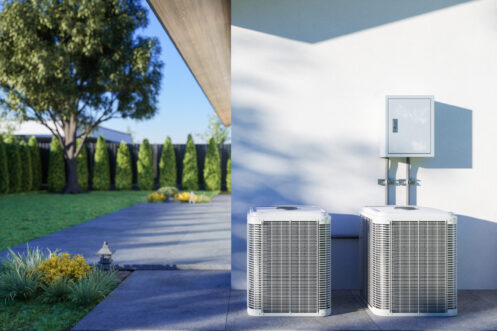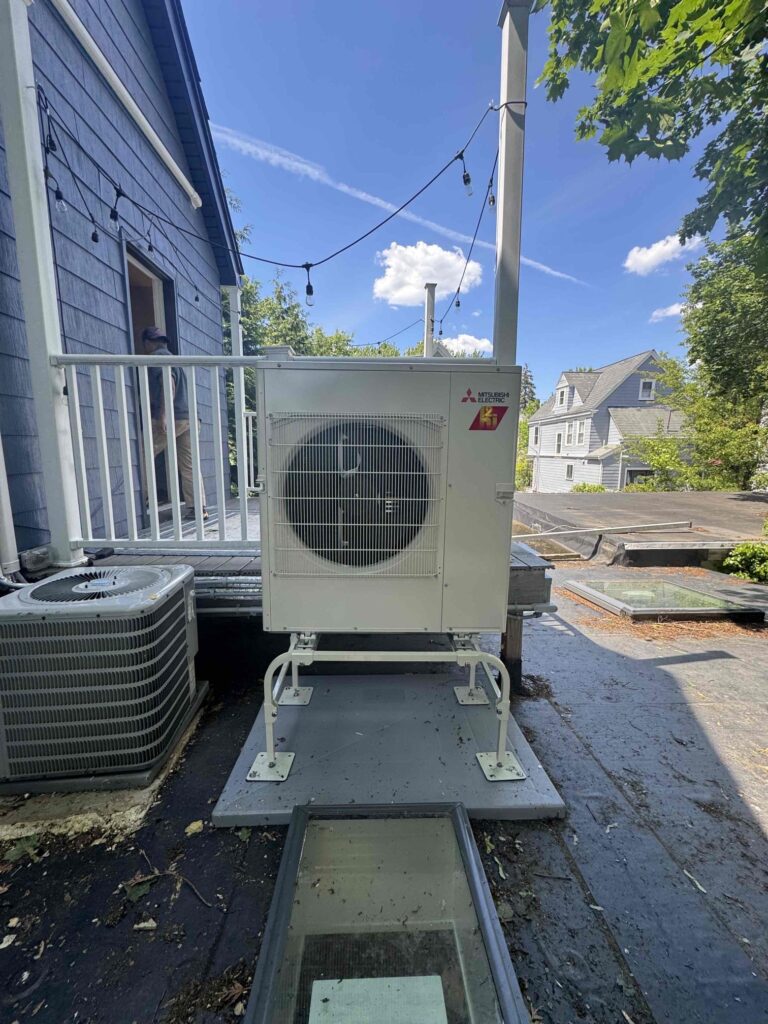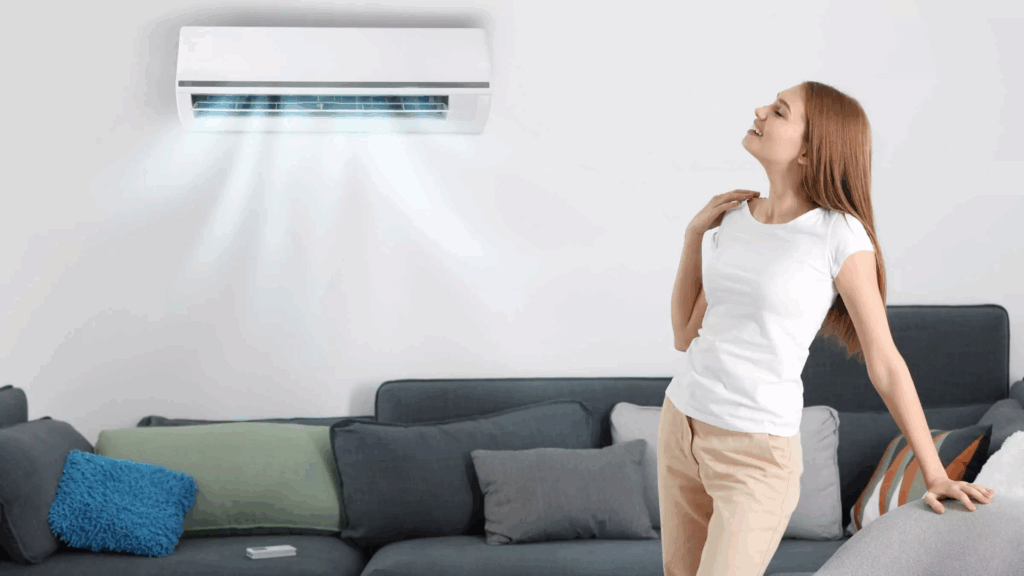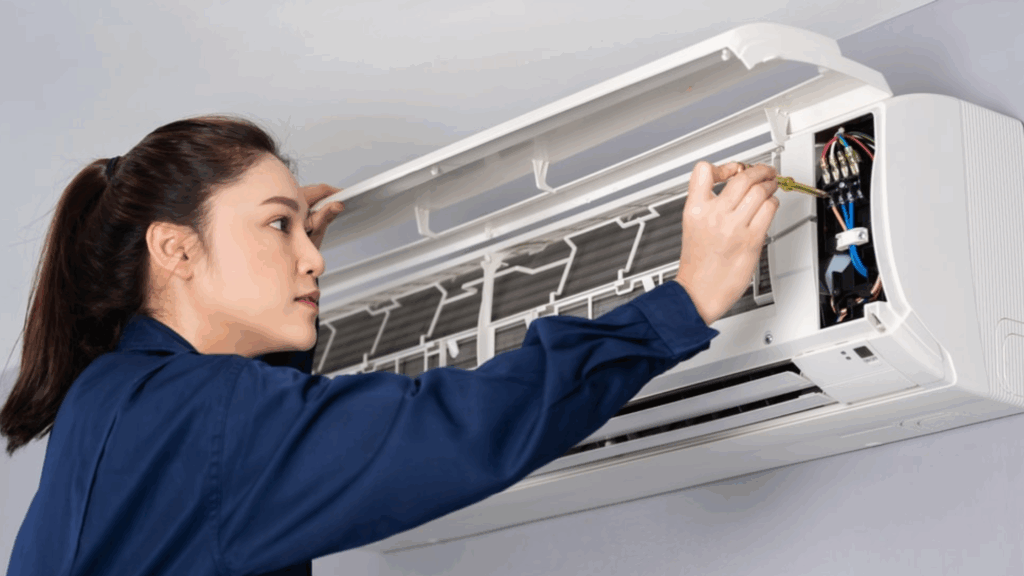Staying on top of cooling maintenance can simplify your life in a lot of ways. You can prevent little problems from becoming big ones by setting up regular inspections and tune-ups. In fact, doing this may end up saving you a ton of hassle, cash and time in addition to helping the cooling system last longer.
Understanding the Unique Cooling Challenges in Massachusetts
AC systems in Massachusetts encounter several common issues throughout the year. These include overworking during the hot and humid summer months as they struggle to maintain indoor comfort levels amidst high temperatures. Winter weather also poses challenges, with outdoor units susceptible to damage from snow and ice accumulation. Fluctuating temperatures throughout the year can contribute to increased wear and tear on components, leading to potential malfunctions. Moreover, the peak cooling and heating seasons result in higher energy consumption and utility bills.
Changing the Air Filter
Because less air can pass through a dirty or blocked filter, the AC will have to work harder, which increases its wear and tear. As time goes on, this might cause the cooling system to malfunction, become less efficient and eventually fail before its time. To ensure optimal performance and longevity, it’s important to check the air filter regularly, ideally once a month, especially during periods of heavy use. Signs that the filter needs changing include reduced airflow from vents and increased dust accumulation on surfaces. You may also notice a decline in indoor air quality, such as exacerbated allergy symptoms or lingering odors.
Looking for Visible Signs of Damage
As a homeowner, another important maintenance task for ensuring the longevity of your cooling system is to inspect it for visible signs of damage regularly. Look for things like leaks, rust, corrosion or unusual noises coming from the unit. These signs could indicate underlying issues such as refrigerant leaks, compressor damage or worn-out components.
However, it’s crucial to remember that attempting to fix these problems yourself can be dangerous and may cause further damage to the system. Instead, if you notice any signs of damage, it’s best to refrain from DIY repairs and call a professional HVAC technician.
Cleaning the Cooling System
Cleaning the cooling system is key to helping it last longer, as accumulated dirt and debris can hinder its efficiency and performance. However, this task is best left to professionals due to the complexity of the system and the specialized tools required. HVAC technicians will meticulously clean all components of the cooling system, including the evaporator and condenser coils, fan blades, blower motor and drain pan.
Another important aspect of professional cleaning is ductwork cleaning. Over time, ducts can accumulate dust, mold and other contaminants. This accumulation decreases airflow and reduces system efficiency. By clearing out the ducts, experts make sure air can move freely throughout the system, which eases pressure on parts and boosts its performance. Regular ductwork cleaning also enhances indoor air quality by removing allergens and pollutants.
Lubricating the Cooling System
Another maintenance step to leave to the pros is lubricating the cooling system. Proper lubrication helps prevent premature wear and extends the lifespan of the system’s critical components. It also reduces noise levels and ensures efficient operation. Different parts of the system that require lubrication include fan motors, bearings and belts.
Testing Thermostat Functionality
A malfunctioning thermostat can lead to overworking of the AC unit, causing extra wear and tear. To test the thermostat, you can manually adjust the temperature settings and observe if the cooling system responds accordingly. You should also check the batteries regularly and make sure the device has proper placement away from heat-generating appliances.
For a more thorough assessment and calibration, it’s advisable to enlist the expertise of HVAC professionals. They can conduct comprehensive tests to ensure the thermostat accurately reads and controls temperature, which will help the cooling system perform better and last longer.
Checking Refrigerant Levels
The efficient operation of a cooling system depends on having the right amount of refrigerant. Less effective cooling and more stress on the compressor might mean a shorter system life if there isn’t enough refrigerant. The inverse is also true: overcharged refrigerant can cause compressor damage and other system malfunctions.
During annual inspections, technicians can check for leaks, replenish refrigerant if necessary and perform any required adjustments. This not only helps the cooling system last longer but also results in higher cooling efficiency, reducing energy consumption and potentially lowering utility bills.
Weatherproofing and Insulation
Effective weatherproofing involves sealing gaps and cracks in windows, doors and walls to prevent warm air infiltration from the outdoors. This reduces the workload on the cooling system by minimizing the amount of hot air that enters the home, thereby enhancing its efficiency and longevity.
Proper insulation in walls, ceilings and attics prevents heat gain during hot weather, keeping the interior cooler and reducing the need for constant cooling. Insulating air ducts prevents energy loss and ensures that cooled air reaches its destination efficiently, optimizing the cooling system’s performance and reducing energy consumption.
Testing Safety Controls
To prevent breakdowns and other dangers, cooling systems use many safety measures. Some examples of such controls include limit switches, temperature sensors, low-pressure switches and high-pressure switches. Avoiding issues like overheating and refrigerant leakage relies heavily on the proper functioning of these controls. During yearly inspections, experts test these controls to make sure they work properly and to find any issues early on. While it’s ideal to have a specialist take care of this during routine maintenance, you should call a pro if you ever notice anything out of the ordinary with a safety control or sensor. This will help keep the system running smoothly and extend its life.
Knowing When to Upgrade
While regular maintenance can significantly extend the lifespan of a cooling system, there comes a point when replacing the unit becomes the most practical solution. Signs that indicate it’s time for an upgrade include frequent breakdowns, rising energy bills, and reduced cooling efficiency. Also, it’s probably a good idea to replace the cooling system with a newer, more efficient one if you’ve had it for more than 10 to 15 years.
When considering replacement options, you have several types of cooling systems to choose from, each with its own lifespan and benefits. Central air conditioning systems, for example, are a popular choice known for their reliability and longevity when properly maintained. Ductless mini-split systems offer flexibility and zoning capabilities, and with regular maintenance, they can provide efficient cooling for many years.
Heat pumps are another option that can provide both cooling and heating, and they generally have a longer lifespan compared to traditional air conditioners. However, the lifespan of any cooling system depends on various factors, including usage, maintenance and environmental conditions. Consulting with a qualified HVAC professional can help you determine the best replacement option based on your specific needs and budget.
[company_name] provides homeowners in towns throughout Massachusetts including Marlborough, Framingham, Southborough, Watertown, Natick, Newton, Franklin, Braintree, Milton, Quincy, Dedham, Medford, Somerville, Cambridge, Waltham and beyond with an array of HVAC services, including heater repairs, AC installations and much more. We also offer home energy assessments. To learn more about helping cooling systems last longer, give us a call now at (508) 501-9990.





